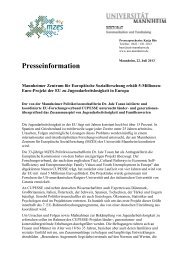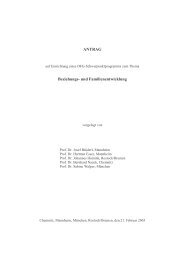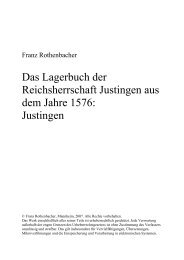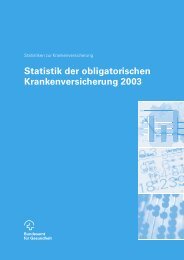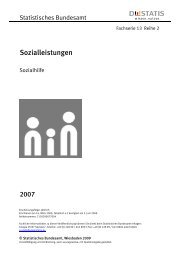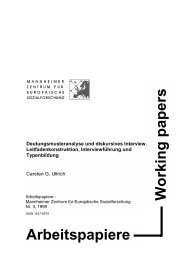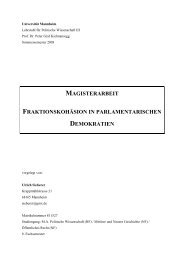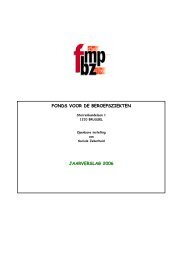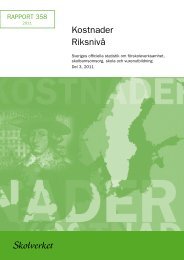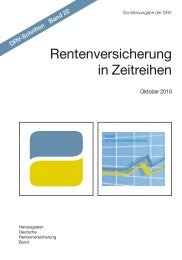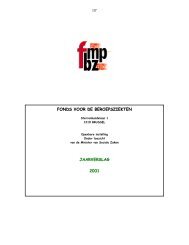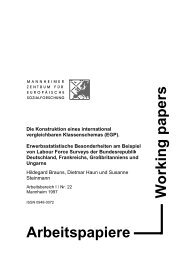Tobias Auberger and Tanja Hitzel-Cassagnes - Mzes
Tobias Auberger and Tanja Hitzel-Cassagnes - Mzes
Tobias Auberger and Tanja Hitzel-Cassagnes - Mzes
Create successful ePaper yourself
Turn your PDF publications into a flip-book with our unique Google optimized e-Paper software.
13<br />
Weiss 2005, Dangerfield 2006, Barani 2006). On the other side, in anticipating the joining<br />
of the European Union the c<strong>and</strong>idate countries started to reform their legal systems <strong>and</strong><br />
made first efforts to “Europeanise” their legal codes in order to prepare enlargement – esp.<br />
after they became obliged to “gradually” harmonise their national legal systems (see Kühn<br />
2005). On the one h<strong>and</strong>, this process led to various negotiations about specific transitional<br />
measures <strong>and</strong>, on the other h<strong>and</strong>, it influenced the efforts of constitutional <strong>and</strong> institutional<br />
reforms insofar as the inclusion of the c<strong>and</strong>idate countries was ameliorated <strong>and</strong> their concerns<br />
were taken more seriously into consideration. However, it might be – inspired by an<br />
ex-post-facto evaluation of this situation – exactly this experience of just being allowed to<br />
articulate one’s own stance without being systematically <strong>and</strong> formally empowered to participate,<br />
that nurtured anxieties about a potential asymmetric functioning of the European<br />
Union with regard to the new Member States after enlargement.<br />
If we have a look at these concerns, different levels of political <strong>and</strong> legal integration have to<br />
be regarded, in the first place distinctively the formal <strong>and</strong> the informal level of the<br />
European Union’s functioning. Regarding the formal level of changing the institutional<br />
composition <strong>and</strong> the decision-making <strong>and</strong> voting rules in the treaties the readings are rather<br />
optimistic insofar as the formal adjustments are appraised to enable an equal participation<br />
<strong>and</strong> cooperation between old <strong>and</strong> new member states (see Bertea 2005, Dangerfield 2006,<br />
Ellison 2005, Osajda 2006). However, this is only one side of the medal – especially acknowledging<br />
the Unions rather informal <strong>and</strong> sub-institutional mode of functioning in<br />
policy-formation <strong>and</strong> law-making – the informal level is quite crucial in twofold distinct<br />
areas. Firstly, considering the inter- <strong>and</strong> intra-institutional will-formation, far more than<br />
procedural cornerstone-rules matter; decisive in this respect are the informal techniques <strong>and</strong><br />
practices of cooperation, deliberation <strong>and</strong> bargaining, so that decision-making processes are<br />
highly a result of a complex web of negotiating games between institutional (<strong>and</strong> non-institutional)<br />
actors, also relying on settled forms of coalition- <strong>and</strong> block-building. Apart from<br />
worries about the decision-making efficiency in general (esp. in the Council <strong>and</strong> the Commission)<br />
worries about the cooperative scheme <strong>and</strong> the equal footing of the new actors<br />
within these games were articulated. Now again, this situation might be interpreted as of<br />
just being a question of (elite) socialisation in order to adapt the traditional “rules of the<br />
game” <strong>and</strong> fit in smoothly. Yet, it might also be a starting point to sensitise for potential



